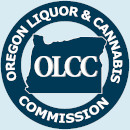- What is the risk of giving alcohol to a minor?
- How can I avoid becoming a victim of shoulder tapping?
- When can a store clerk refuse to sell liquor to me?
- How am I at risk if I give liquor to friends or guests who have had too much to drink?
- How much liquor can I bring from another state?
What is the risk of giving alcohol to a minor?
Selling, giving or otherwise making available alcohol to a minor (someone who is not yet 21 years of age) is a Class A misdemeanor. The provider of the alcohol will be cited into court and appear before a judge. If convicted, the court will impose at least a mandatory minimum sentence of:
- $ 350 fine for a first conviction.
- $1000 fine for a second conviction.
- $1000 fine and not less than 30 days imprisonment for a third or subsequent conviction.
The court may also require the violator to make restitution for any damages or may require community service. The violator will have a Class A misdemeanor criminal conviction on their record.
[ORS 471.410]
In addition, if you provided alcohol to a minor, and that minor causes injury or damage, you might be sued under Oregon's civil "dram shop" statute.
[ORS 471.565]
How can I avoid becoming a victim of shoulder tapping?
"Shoulder-tapping" occurs when a minor asks an adult to purchase alcohol for the minor. Usually this occurs outside a store or market when a minor asks an adult (usually a stranger) who is entering the store to purchase alcohol for the minor. Providing alcohol to a minor through a "shoulder-tap" is a crime: a Class A misdemeanor. The penalties for providing alcohol to a person under 21 through a "shoulder-tapping" situation are the same as they are for selling, or giving alcohol to a minor. The adult provider will be cited into court and appear before a judge. Upon conviction, the court will impose at least a mandatory minimum sentence of:
- $ 350 fine for a first conviction.
- $1000 fine for a second conviction.
- $1000 fine and not less than 30 days imprisonment for a third or subsequent conviction.
[ORS 471.410]
When can a store clerk refuse to sell liquor to me?
- When you appear to be under 26 years of age and cannot provide proof of age that satisfies the seller that you are of legal age.
- When store policies require that all sales of alcohol require a valid state-issued identification and you cannot provide such identification, or when store policies require that a clerk must refuse to sell alcohol if the adult purchaser is accompanied by minors.
- When the store clerk suspects that the alcohol will be provided to a minor because the clerk saw a "shoulder-tap", or the clerk has other reason to believe the alcohol will be provided to a minor.
- When you are displaying visible signs of intoxication.
- When the clerk has reason to believe that you are visibly intoxicated, or not yet 21 years of age, or that the alcohol will be given to a minor or visibly intoxicated person.
How am I at risk if I give liquor to friends or guests who have had too much to drink?
You are at risk of being sued under the "dram shop act," ORS 471.565. The law states that if there is injury, death or damages caused by an intoxicated person, the social host who provided the alcohol to the intoxicated person may be liable for damages if the social host served or provided alcohol to a guest while the guest was visibly intoxicated.
[ORS 471.565]
How much liquor can I bring from another state?
An adult entering Oregon may bring the following amounts of alcohol with them into Oregon:
- Four liters (135.2 fluid ounces) of distilled liquor
- Two cases of wine or cider (620 fluid ounces) of wine or cider
- Two cases of malt beverages (576 fluid ounces)
Any amount larger than this is subject to taxes and fees collected by the commission. Upon conviction for unlawfully purchasing or transporting more than the amounts listed above, the person convicted will forfeit the alcohol purchased or transported.
[ORS 471.405]

